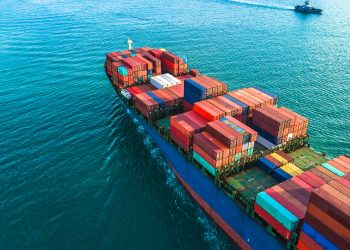Container ships operate faster than the tankers and bulkers, making them more difficult targets
 Those who ship goods by container have barely been impacted by piracy off East Africa. Container ships have high freeboard and despite slow-steaming by carriers to save on fuel, they operate faster than the tankers and bulkers, making them more difficult targets for pirates.
Those who ship goods by container have barely been impacted by piracy off East Africa. Container ships have high freeboard and despite slow-steaming by carriers to save on fuel, they operate faster than the tankers and bulkers, making them more difficult targets for pirates.
That’s the good news for container shippers. The bad news is that piracy is growing, and sooner or later container ships operating from Asia to Europe, or Asia to North America via the Suez Canal, are going to be in the crosshairs of piracy.
The news isn’t good. According to monitoring body the International Maritime Bureau, pirate attacks were up 36 percent in the first half of 2011.
The shipping industry is increasingly alarmed, and with good reason. Listen to the International Chamber of Shipping, which represents 80 percent of the world merchant fleet, in a release on Sept. 28th marking World Maritime Day (which the International Maritime Organization dedicated to raising awareness of piracy).
The ICS “is deeply concerned that little real progress is being made towards developing any radical new strategy that will deliver immediate results. The industry seems to be faced with the utter frustration of an increasing number of attacks for the foreseeable future.”
In other words, the convoys, navy presence, armed guards, safe houses, barbed wire and other measures have failed to defeat much mitigate the scourge of piracy. As of Sept. 25th there have been 344 pirate attacks on merchant shipping off of East Africa.
Also of that date there were 15 vessels with 277 crew being held hostage, and a further 19 being held prisoner on land, according to the International Maritime Bureau. An organization whose board I sit on, the New York-based Seamen’s Church Institute, is sponsoring the first study of the psychological effects on seafarers who have been subject to pirate attack or been taken hostage.
“Piracy is reaching an all-time high: in the number of incidents, in the vast ransoms demanded and, most of all, in the extreme violence used. The treatment meted out to the victims now frequently crosses the line from savagery into torture,” said Peter Swift, chairman of the recently formed Maritime Piracy Humanitarian Response Programme. He is a former managing director of the trade group Intertanko.
Piracy is a humanitarian issue, a trade issue and an economic issue. It needs to be solved.
Source: Journal of Commerce





























































